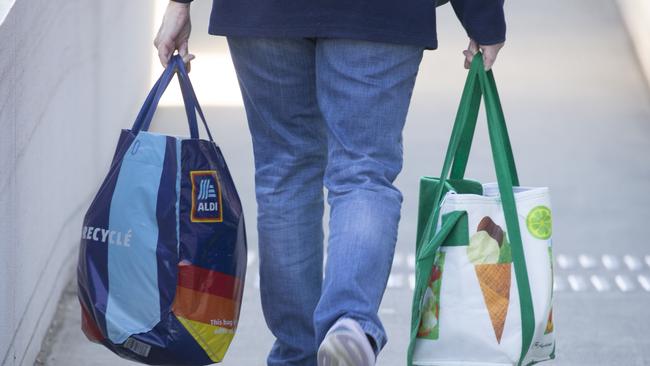Anthony Albanese escalates supermarket crackdown with pricing rule overhaul
The overhaul of pricing obligations will attempt to arrest so-called ‘shrinkflation’, where supermarkets and producers quietly cut product sizes rather than raise prices.

The competition watchdog’s pricing rules for the grocery sector are set to be overhauled as Labor escalates its crackdown on the major supermarkets.
Anthony Albanese said he would move to further strengthen the Australian Competition & Consumer Commission’s unit pricing code in an attempt to tackle so-called “shrinkflation”, where supermarkets and producers quietly cut product sizes rather than raise prices.
“Tackling ‘shrinkflation’ through stronger unit pricing and new penalties is part of our plan to get a better deal for Australians,” the Prime Minister said.
Under current competition laws, grocery retailers are subject to a code that requires the cost of a host of perishable and packaged items – including bread, milk, eggs and flour – to be stipulated using a standard unit of measurement.
The government will consult on a series of amendments to the code, including changes to enhance its visibility, expand its scope, and address inconsistent units of measurement, in a bid to help shoppers to more accurately compare prices.
Substantial penalties will also be levelled against retailers that breach the amended rules.
Analysis by consumer group Choice has revealed a number of products subject to “shrinkflation”, as packages were reduced in size, while prices remained constant.
For instance, Woolworths’ original salted corn chips were $2.30 for 200g in October 2023. Five months later, the product was unchanged in price, but its size had slipped to $175g.
As stubborn inflation crunches household budgets, the Albanese government has turned the screws on the major supermarkets, as it seeks to demonstrate its intentions to help consumers fight back against elevated prices.
Among a suite of measures announced by Labor are an overhaul of rules governing relations between supermarkets and their suppliers, increased funding for the competition watchdog, and enhanced penalties for breaches of consumer law.
Amid heightened scrutiny and a protracted political brawl over their profits, Coles and Woolworths, which together account for 67 per cent of grocery sales, have assiduously maintained their profit margins have remained largely consistent.
However, community and political antipathy against the two supermarket giants was further fuelled last week when the ACCC launched a probe into their pricing practices, alleging the pair had misled their customers by offering sham discounts.
Asked on Tuesday if supermarkets had exacerbated inflationary pressures, Jim Chalmers – who has repeatedly argued that snarled supply chains have been the predominant source of Australia’s inflation scourge – was coy on the matter.
“Our inflation challenge has a number of sources, some of them are global and some of them are domestic,” the Treasurer told reporters.




To join the conversation, please log in. Don't have an account? Register
Join the conversation, you are commenting as Logout